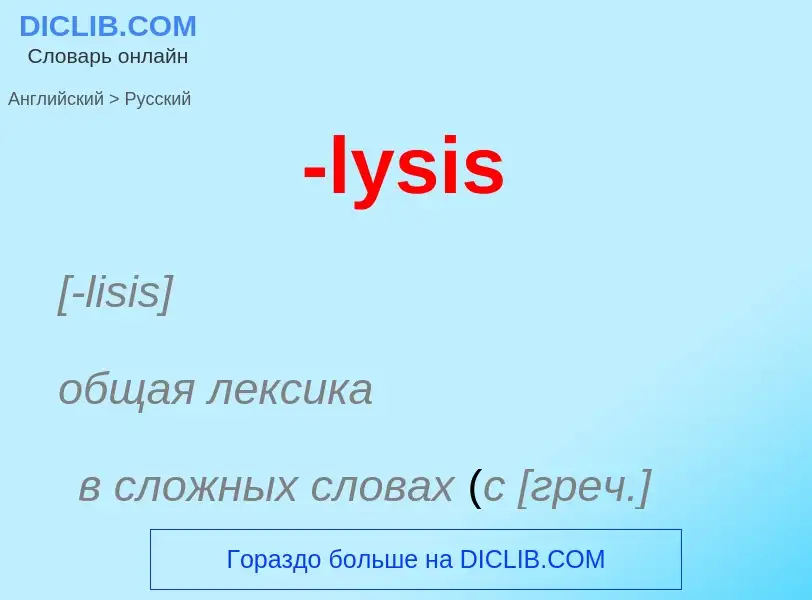Translation and analysis of words by artificial intelligence
On this page you can get a detailed analysis of a word or phrase, produced by the best artificial intelligence technology to date:
- how the word is used
- frequency of use
- it is used more often in oral or written speech
- word translation options
- usage examples (several phrases with translation)
- etymology
-lysis - translation to russian
[-lisis]
общая лексика
в сложных словах (с [греч.] корнями) имеет значение распад
разложение
['laisis]
общая лексика
лизис
распад
существительное
медицина
лизис
Definition
Wikipedia
Lysis of Taras (; Greek: Λῦσις; fl. c. 5th-century BC) was a Greek philosopher. His life is obscure. He was said to have been a friend and disciple of Pythagoras. After the persecution of the Pythagoreans at Croton and Metapontum he escaped and went to Thebes, where he became the teacher of Epaminondas, by whom he was held in the highest esteem. There are, however, serious chronological difficulties with his being both a disciple of Pythagoras and the teacher of Epaminondas. Some of the commentators and doxographers have failed to distinguish between the two different anti-pythagorean revolutions: the first one around ~500, when Pythagoras himself died, and the second one fifty years later. This could clarify the source of the chronological incoherence.
Lysis was credited as the actual author of a work which was attributed to Pythagoras himself. Diogenes Laërtius quotes from an undoubtedly spurious letter from Lysis to Hippasus as an authority for some statements concerning Damo.

